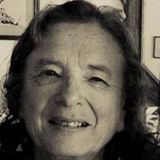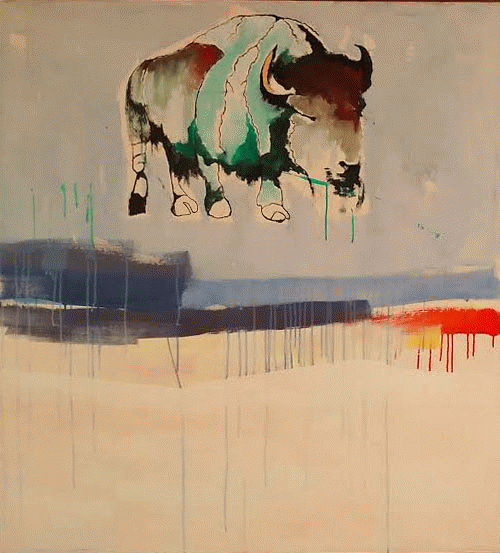Most people don't take seriously the fact that this country was stolen from the Native Americans, and that millions of them were killed in the process. It has been swept from the national consciousness as if it never occurred- or if it did, it was a noble act in the name of God, civilization and progress. The number of Indians who died because of what we called Manifest Destiny has always been a subject of debate among scholars, but I believe that the majority of informed historians and anthropologists now agree that between seven million and eighteen million indigenous people were living in what is today the continental United States when Columbus arrived in the New World. By 1924 there were fewer than 240,000 left; their ancestors had been victimized by centuries of disease, starvation and systematic slaughter. from Brando- Songs My Mother Taught Me -- with Robert Lindsay
Until recently, Native Americans were ignored by the mainstream culture. Some people thought they were all dead, others that they were mostly drunks, lost souls barely subsisting. Others idealized them, and saw them as "noble savages" whose esoteric ways could lead to a higher consciousness.
The heroic stand of the Standing Rock Lakota against EnergyTransfer, builders of the Dakota Access Pipeline, has changed all that. Mobilizing enormous support across racial and cultural lines, these Native Americans are now seen as leaders in the fight to save the planet.
Supporting the Water Protectors has been a fairly easy extension of support for Black Lives Matter, LGBT rights and many ecological causes. But there are some fundamental differences between these other causes and the stand of the Lakota, which should be looked into more deeply.
1) Everyone in the United States except for Native Americans are immigrants or descended from immigrants. We are living on land that was stolen from indigenous tribes. Although we have paper that shows that we legitimately hold title to the ground we live on, deep down we know that Indians lived here before us, and were slaughtered or penned into small reservations in order that we might have property. There is a collective guilt in the American unconsciousness about the genocide on which the country is based. As Brando points out, it has been far worse that Hitler's Holocaust.
The Lakota have not forgotten. Every December they make a two week Memorial Ride, through the bitter Dakota winter, from Standing Rock where Sitting Bull was murdered on December 15th, 1890, to Wounded Knee, where over 300 defenseless Lakota were massacred by the Seventh Cavalry on December 29th, 1890. They say they are wiping the tears of their ancestors, who fled down this 200 mile trail in 1890, seeking the safety which they were denied.
As guns and tanks from 7 law enforcement agencies now surround the camps of the Water Protectors, many of them recall 1890, and fear a similar massacre. So far, no one has been killed, but the mass arrests and harassment are a vivid reminder that anything can happen.
2) Most of the causes that we care about are based on good values: justice, ecological sanity, upholding of freedoms mandated by the Bill of Rights. But very few include a spiritual aspect. Indeed, there seems to be an attitude that prayer and appeal to a Higher Power somehow violates the First Amendment. Such appeal are considered signs of religious fanaticism as practiced by right wing Christians who oppose abortion, deny evolution, and even see climate change as a sign of Armageddon, to be welcomed.
The Lakota, on the other hand, base their activism on prayer and appeals to the Great Spirit, Wakan Tanka. They believe it is their collective spiritual power that has stalled the pipeline thus far and gathered widespread support for their stance. It is Spirit that enables them to withstand the hardships of camping, face the tear gas and rubber bullets, and remain nonviolent in the face of enormous provocation. Spirit even brought Tatanka Oyate, the buffalo people, to support them on 10/27, when there were mass arrests. Their religion includes their connection to the sacred land water, and protecting these is for them, a spiritual act.
(Note: You can view every article as one long page if you sign up as an Advocate Member, or higher).






